100th Anniversary Great Nave Tour at the Cathedral of St. John the Divine
Celebrate the 1925 construction of the stunning nave inside the world's largest Gothic cathedral!


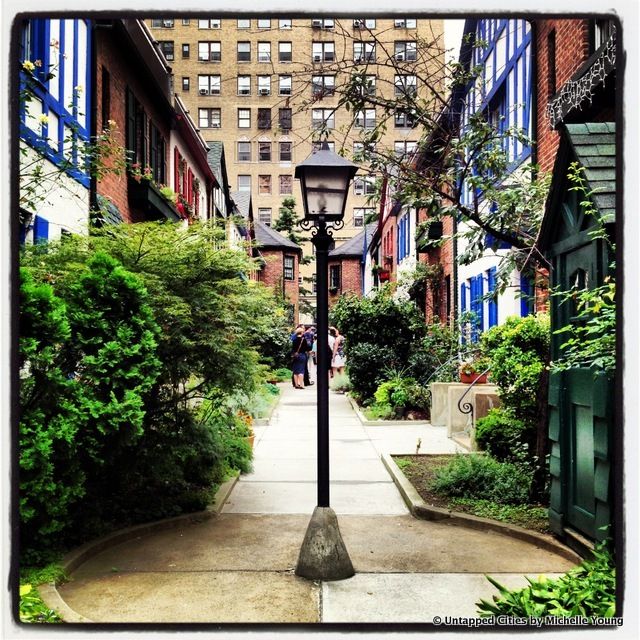
Pomander Walk on the Upper West Side
Strolling through certain streets or areas of NYC, you might feel suddenly transported to an older time. From an old world fishing village in the Bronx, to back houses transformed into luxury mansions in the West Village, the following areas capture the essence of a different period of NYC. While some, like City Island Fishing Village stand as microcosms, others are literally side-by-side with modern skyscrapers.
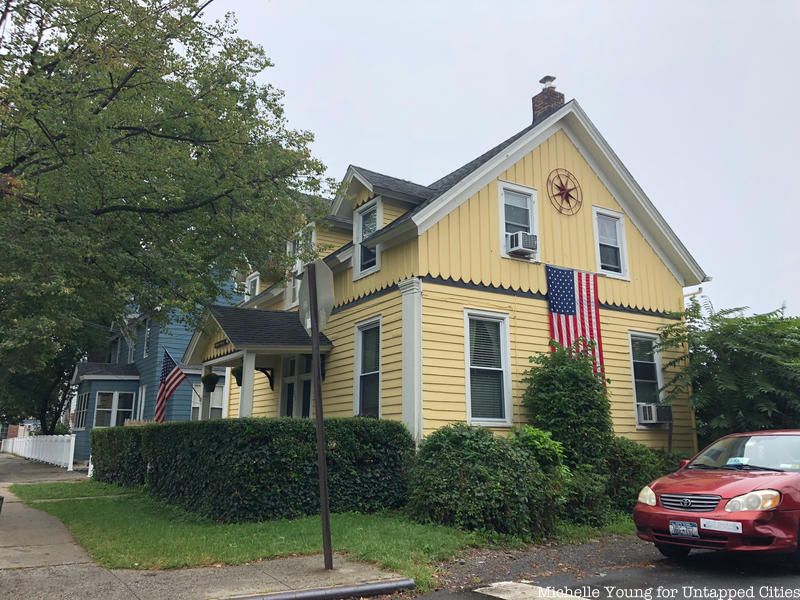
In the far depths of the Bronx, a small island entitled City Island lies just off Pelham Parkway. Scouting New York just published a piece about the unique village, documenting this anomaly in the city. More in line with a small town on Cape Cod, City Island is indeed a picturesque fishing village–from docks full of colorful fishing boats to a white steepled church. Pizza and bagel joints of the rest of the city are replaced by lobster and fish shacks, while Duane Reade stores are replaced by bait and tackle shacks. City Island has an old world feel, where life slows down to a fisherman’s pace and bikes are as common as cars.
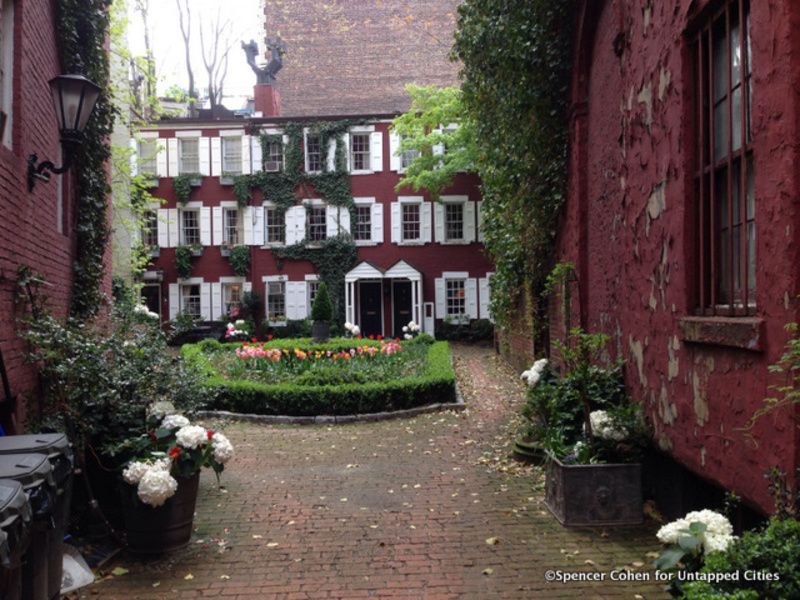
A small court yard entitled Grove Court is hidden off of Grove Street (one of our favorites streets in NYC with a fantastic history!) in the West Village. The alley was created in 1848 to house tradesmen and other workers by a grocery store owner named Samuel Cocks. Is was undesirable housing and due to the cheap alcohol made there, it was dubbed “Mixed Ale Alley.” Like much of New York City real -estate, today it has become extremely desirable Federal Style apartments. It still retains an old metal gate and cobbled road.
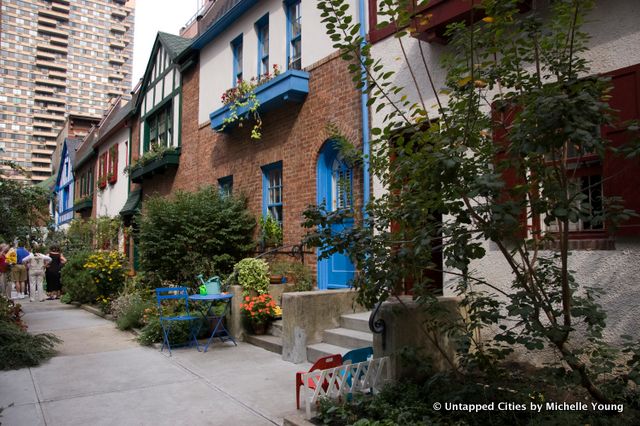
Hidden among buildings on the Upper West runs Pomander Walk, a small English-inspired street. With the entrance on 95th Street and West End (and fences to catch a sight of this old world street on both 94th and 95th streets), this street is unknown even to many locals and can only be accessed by residents who have a key to the gate. The street was built in 1921 by Irish immigrant and successful entrepreneur Thomas Healy and imagined as a “colony.” The walk was named after and inspired by the set of a popular play at the time called Pomander Walk, which featured a London street from the Georgian Period.
See more photos from Pomander Walk here.
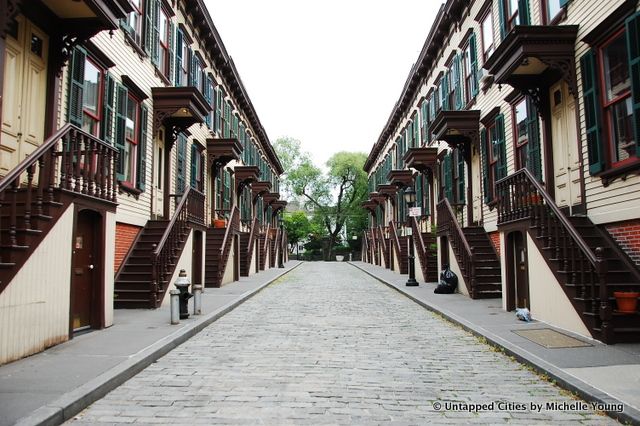
Located in Washington Heights just next to the famed
 Washington Mews, now apart of NYU
Washington Mews, now apart of NYU
This small alley, shorter than a normal street, is located in Greenwich Village and located between 5th Avenue and University Place, just south of Washington Place. The street is closed off to the public but one can easily catch the old world essence peering through the gate. The street is historically rooted in a native American–specifically Lenape–trail, a rare occurrence for a street still in existence today. In the 19th century, akin to MacDougal Alley, the street was lined with stables for the horses of those living in the grandiose townhouses in the area. Eventually the land was acquired by NYU and turned into faculty housing and other uses for the school.
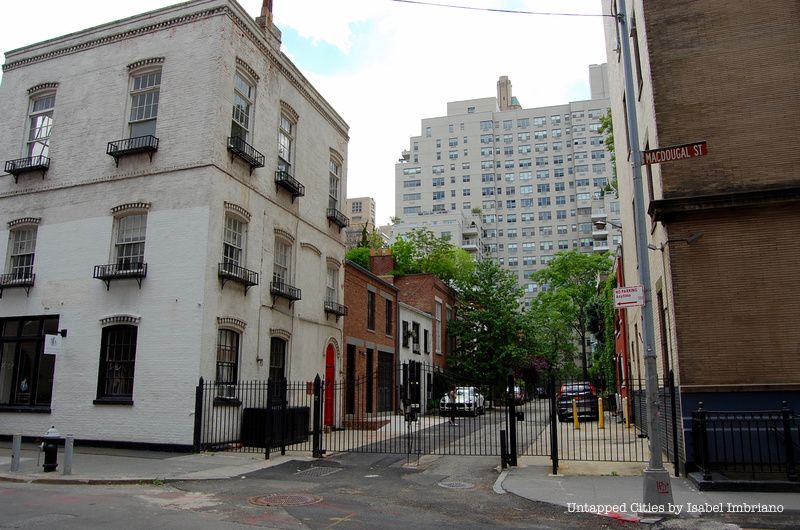
The street—south of West 8th Street and north of Waverly Place—harkens back to the days of great townhouses along the vast expanse of Washington Square North and Eighth Street in the latter half of the 19th century. The small street was officially established in 1883 to house stables for these townhouses, with the numbers of the corresponding townhouses still visible. From 1949 to 1950 Jackson Pollock lived at number 9 on the alley. It is very much akin to Washington Mews, and if both were to extend, they would even form the same street.
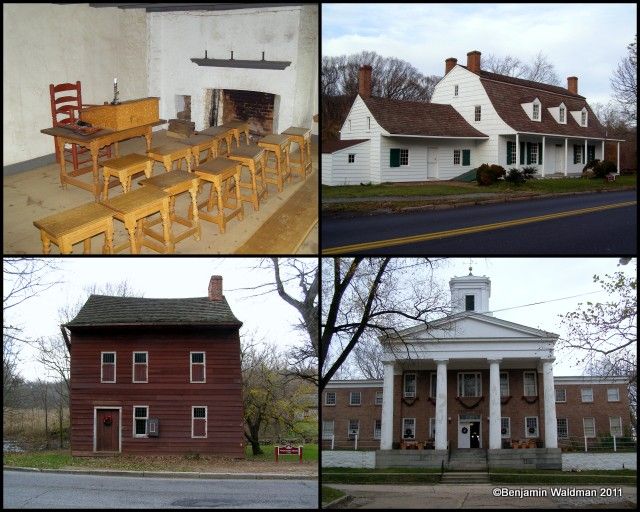
Old Richmond Town, a small historic area in Staten Island, is an area that preserves the rich history of borough, i
ncluding a structure that is considered the oldest elementary school in the United States. The town dates back to the 17th century and was the county seat until 1898. The area was first designated in the 1930s to counter a fear of a losing the history of the neighborhood. You’ll find actors dressed in period costume among the site’s 28 buildings which include a courthouse and Voorlezer’s House, the elementary school.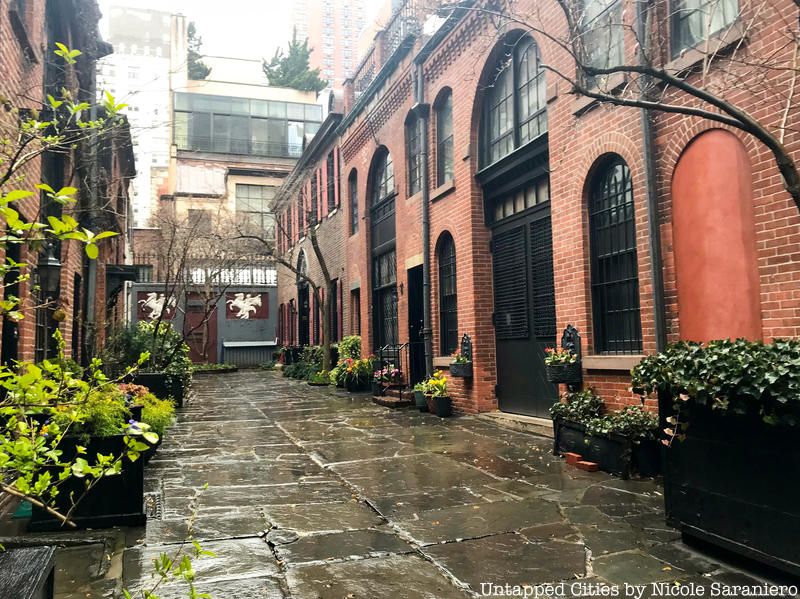
This small private alley–now a historic district–is located in Murray Hill and is a private street. Starting in 1863 and ending one year later in 1864, John Sniffen built 10 carriage houses lining the alley, that have now been coverted into apartments. It has an old world feel with two white pegasus’ gracing the back wall.
There are also numerous small historic districts around the city that are less than one block, many of which have an akin old world feel!
Get in touch with the author @spencercnyc
Subscribe to our newsletter